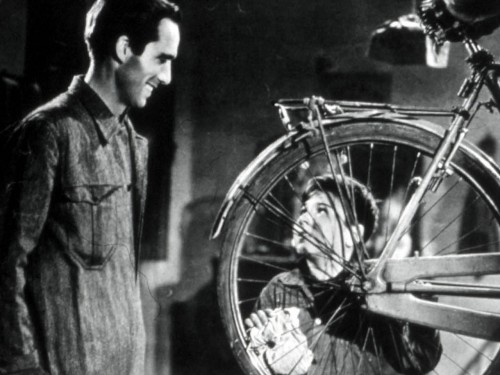
1. The New York Times hosted a debate asking the question of whether capitalism has become incompatible with Christianity. It’s a pretty interesting forum, and some highlights with commentary are below:
[Gary Dorrien, Union:] The field I teach, social ethics, was founded in the late 19th century as a protest against capitalist ideology. American social gospel theologian Walter Rauschenbusch put it poignantly: “Capitalism has overdeveloped the selfish instincts in all of us and left the capacity of devotion to larger ends shrunken and atrophied.” Pope Leo XIII described capitalism as a system defined by the callousness of employers and the greed of unrestrained competition, including its drive to leave workers isolated and defenseless.
These founders of Christian social ethics recoiled at the predatory logic of capitalism. They perceived that unfettered capitalism would corrupt everything it touched by turning labor, nature and everything else into a commodity. A century later, it is not even debatable whether American capitalism has turned American society into an adjunct of the market.
The one thing lacking is an alternative. Thus another commentator (Michael Novak) calls capitalism the ‘most moral of a bad lot of economic systems’:
First, no other system has so quickly and so globally lifted the poor out of poverty. If you look at a chart of population and income since the beginning of the Christian era, the line of growth is nearly flat for 18 centuries, and then with the introduction of invention and discovery it shoots upward.
Second, no other system has so deeply grasped that the cause of the wealth of nations is, as John Paul II said, “the possession of know-how, technology and skill,” “disciplined and creative human work and, as an essential part of that work, initiative and entrepreneurial ability.”…
Fourth, in the two centuries since the birth of capitalism the average life expectancy has risen from 26 to 67. Earth is teeming with human life as never before. In 1800, there were fewer than one billion humans on the planet; today there are over seven billion. In at least that sense, capitalism has vastly expanded the domain of life.
Pope Francis decries an “economy of exclusion.” Similarly, John Paul II emphasized the moral obligation to include every woman and man in “the circle of development.” To include all of the forgotten people of Latin America (let alone Africa and Asia), some 20 million new small businesses need to be formed, each employing three to six workers at decent wages. In many jurisdictions this would mean changing laws, to allow new small businesses to be registered at minimal cost and without the need to pay bribes to officials. It would also mean building new organizations to specialize in micro-loans for small businesses – and also in providing practical advice so that new businesses more easily succeed.
Seems like an end-of-history complex with some justifications attached (correlation/causation one of several problems here). One response was particularly helpful, that of Colleen Campbell, a journalist:
Christians must constantly wrestle with the tension of worshipping a God who became poor while living in a culture where money talks. As soon as we believe we’ve found a way to escape that tension – by uncritically embracing the excesses of capitalism or by scapegoating it for all our personal and social sins – we can be fairly sure we’ve found an idol instead.
This goes beyond uncritically embracing capitalism and beyond viewing it as some external evil, some source of temptation extricable from the humans who invented and sustain it. And James K.A. Smith, finally:
Christianity is incompatible with libertarianism — an ideology rooted in social atomism that pits all against all in a war of wills. Capitalism is not inherently libertarian, so the more it is wed to such a distorted social ontology, the more it becomes inconsistent with Christianity, which is fundamentally communitarian. When capitalism ceases to be an engine of the common good, it is inconsistent with Christianity.
Smith’s is a balanced and deep-reaching view, though the idea that capitalism isn’t inherently agonistic could be challenged. A few things from all these answers stick out: (1) why are Popes referenced so much? Perhaps the national diversity of the RC community allows it to be more in touch with developing countries. (2) everyone’s talking about ‘flourishing’, which in the present context seems to mean, “some vague concept of human thriving which goes beyond per-capita GDP, we don’t know quite how”, which relates to (3) what is the common good? Neoclassical economics trusts the market to determine that, so to question capitalism’s efficacy as an engine of the common good is already to appeal to something beyond it; Smith’s article doesn’t mention what that is.
Marcel Proust tells the story of a progressive aristocrat, Saint-Loup, who treats his coachman horribly precisely because he believes in the equality of all men. Christianity, particularly after the Reformation, contributed to egalitarianism, undoubtedly a good thing, but one which may have had the side-effect of unleashing the sort of struggle Proust (and JKA Smith) observes. Egalitarianism + aberrant Christianity’s moral meritocracy, as Weber noticed, can become allied to a quest ‘visible signs’ which often include prosperity, if only subconsciously. Adam Smith sprang from the milieu of Scottish moral theology, after all, and it’s hard to envision Smith’s “invisible hand” apart from the (Christian) concept of a God who “worketh all things together for good.” Even those preliminary indicators are enough to suggest that a Christian critique of capitalism would need to turn first toward its theological underpinnings and Christianity’s own historical role in promoting individualism, competition, hope for a better lot, etc. Another way of saying to focus on the log in our own eye, and Campbell’s warning of idolatry, combined with JKA Smith’s implicit question of what distinguishes Christianity’s common good from the invisible hands, are good signposts toward something that could break the gridlocks of naive embracement and naive excoriation.
Another question: why talk about this now? Like someone who rediscovers a running or Warcraft hobby after a breakup, if growth starts to look shakier over the next few decades, questions of delimiting capitalism’s meaning, finding other sources beside or beyond it, and reckoning its downsides will become increasingly urgent.
2. Speaking of which, an Atlantic headline this week promises to tell us “Why Kids Care More About Achievement Than Helping Others”,ht DZ:
In the study, “The Children We Mean to Raise: The Real Messages Adults are Sending About Values,” the authors point to a “rhetoric/reality gap,” an incongruity between what adults tell children they should value and the messages we grown-ups actually send through our behavior. We may pay lip service to character education and empathy, but our children report hearing a very different message.
While 96 percent of parents say they want to raise ethical, caring children, and cite the development of moral character as “very important, if not essential,” 80 percent of the youths surveyed reported that their parents “are more concerned about achievement or happiness than caring for others.” Approximately the same percentage reported that their teachers prioritize student achievement over caring. Surveyed students were three times as likely to agree as disagree with the statement “My parents are prouder if I get good grades in my class than if I’m a caring community member in class and school.”
“Rhetoric/reality gap” sure resonates with me, and as the article notes farther in, kids can sense when words aren’t sincere; they, like most other people, can see beyond words, especially when the expectations are being directed at them. The author suggests modeling empathy rather than just talking about it. That’s all “holy and just and good”, but kids can probably see through actions, too. It seems the best solution would be for parents to actually become empathetic, but that’s probably well outside the realm of ‘achievability’.
3. Parenting follow-up: NPR’s Tanya Lombrozo looks at the contrast between knowing and doing as she probes the question of “Why We Aren’t the Parents We Know We Could Be“.
Of course, there are all sorts of reasons why “knowing better” doesn’t always translate into “doing better”: we’re busy and exhausted, we’re lazy and set in our ways. Plus, it isn’t always obvious when and how the abstract applies to the concrete. But it turns out that one of the most important lessons from psychology about how to change children’s behavior is also the key to why knowledge of better parenting is rarely enough to make us better parents.
She lands on a solution:
When it comes to my children, I know that punishment is rarely effective. I try — with varying degrees of success — to implement strategies like reinforced practice and positive opposites. Now I’m trying to do the same for myself. After all, unconstructive self-judgment is itself a form of punishment and not a very effective one. Instead, I’m trying to create circumstances for better parenting, and to pat myself on the back when I pull it off.
Though I think I prefer John Z’s observation that
…our best thinking and planning is not enough to beat our defects of character. We cannot change ourselves, even if we understand the ways in which we would like to change. Shel Silverstein points this out in his classic poem, “The Little Blue Engine”: “If the track is tough and the hill is rough, THINKING you can just ain’t enough.” Until we view our inflexible personalities this way, we will remain stuck in our delusions about both ourselves and the world at large.
4. A new Pantene commercial offers women a glance at life on the other side of apologies, the self-assurance which comes with a strong shine to big hair momentarily overcoming women’s misguided instinct to accept blame for things that aren’t their fault. The video, below, has understandably prompted some gender discussion, as well as one interesting argument that although women say ‘sorry’ more, it tends to be a way of taking other people into account more than outrightly assuming blame; men conveniently misinterpret it, ht RW:
https://www.youtube.com/watch?v=rzL-vdQ3ObA&w=600
Among Britons, Tannen said, the word is used in these ways by both women and men, but in this country, American women are more likely than American men to use the word in its not-strictly-apologetic forms. “I see this as the more general phenomenon that language almost never means what the dictionary definition says; it’s used the way others use it — as a ritual,” Tannen said. “But those who don’t share the ritual tend to take the words literally. Since American men don’t tend to use ‘sorry’ this way, they mistakenly take women’s use of it literally, as an apology.
5. At the New Yorker, David Sedaris’s account of buying and using a Fitbit – wriststrapped device which rewards you by vibrating when you hit X-number of steps – is masterful account of one man’s love affair with the law:
When I hit thirty-five thousand steps a day, Fitbit sent me an e-badge, and then one for forty thousand, and forty-five thousand. Now I’m up to sixty thousand, which is twenty-five and a half miles. Walking that distance at the age of fifty-seven, with completely flat feet while lugging a heavy bag of garbage, takes close to nine hours—a big block of time, but hardly wasted. I listen to audiobooks, and podcasts. I talk to people. I learn things: the fact, for example, that, in the days of yore, peppercorns were sold individually and, because they were so valuable, to guard against theft the people who packed them had to have their pockets sewed shut.
At the end of my first sixty-thousand-step day, I staggered home with my flashlight knowing that I’d advance to sixty-five thousand, and that there will be no end to it until my feet snap off at the ankles. Then it’ll just be my jagged bones stabbing into the soft ground. Why is it some people can manage a thing like a Fitbit, while others go off the rails and allow it to rule, and perhaps even ruin, their lives? While marching along the roadside, I often think of a TV show that I watched a few years back—“Obsessed,” it was called. One of the episodes was devoted to a woman who owned two treadmills, and walked like a hamster on a wheel from the moment she got up until she went to bed. Her family would eat dinner, and she’d observe them from her vantage point beside the table, panting as she asked her children about their day. I knew that I was supposed to scoff at this woman, to be, at the very least, entertainingly disgusted, the way I am with the people on “Hoarders,” but instead I saw something of myself in her. Of course, she did her walking on a treadmill, where it served no greater purpose. So it’s not like we’re really that much alike. Is it?…
Shortly after I decided on a typeface, for reasons I cannot determine my Fitbit died. I was devastated when I tapped the broadest part of it and the little dots failed to appear. Then I felt a great sense of freedom. It seemed that my life was now my own again. But was it? Walking twenty-five miles, or even running up the stairs and back, suddenly seemed pointless, since, without the steps being counted and registered, what use were they? I lasted five hours before I ordered a replacement, express delivery. It arrived the following afternoon, and my hands shook as I tore open the box. Ten minutes later, my new master strapped securely around my left wrist, I was out the door, racing, practically running, to make up for lost time.
6. A wonderful, straight-down-the-line (little-l) law-grace story we missed back in January: “The law was our schoolmaster…”, ht AOC:
Ripping up the playground rulebook is having incredible effects on children at an Auckland school.
Chaos may reign at Swanson Primary School with children climbing trees, riding skateboards and playing bullrush during playtime, but surprisingly the students don’t cause bedlam, the principal says.
The school is actually seeing a drop in bullying, serious injuries and vandalism, while concentration levels in class are increasing…
Mudslides, skateboarding, bullrush and tree climbing kept the children so occupied the school no longer needed a timeout area or as many teachers on patrol.
Instead of a playground, children used their imagination to play in a “loose parts pit” which contained junk such as wood, tyres and an old fire hose.
“The kids were motivated, busy and engaged. In my experience, the time children get into trouble is when they are not busy, motivated and engaged. It’s during that time they bully other kids, graffiti or wreck things around the school.”
Parents were happy too because their children were happy, he said.
But this wasn’t a playtime revolution, it was just a return to the days before health and safety policies came to rule.
AUT professor of public health Grant Schofield, who worked on the research project, said there are too many rules in modern playgrounds.
“The great paradox of cotton-woolling children is it’s more dangerous in the long-run.”
Society’s obsession with protecting children ignores the benefits of risk-taking, he said.
Children develop the frontal lobe of their brain when taking risks, meaning they work out consequences. “You can’t teach them that. They have to learn risk on their own terms.”
7. And finally, David Brooks’s brilliant defense of “the real” is, from our perspective, stunningly good:
Most advice, whether on love or business or politics, is based on the premise that we can just will ourselves into being rational and good and that the correct path to happiness is a straight line. These writers, in the “Seven Habits of Highly Effective People” school, are essentially telling you to turn yourself into a superstar by discipline and then everything will be swell.
But Netzer’s piece is nicely based on the premise that we are crooked timber. We are, to varying degrees, foolish, weak, and often just plain inexplicable — and always will be. As Kant put it: “Out of the crooked timber of humanity no straight thing was ever made.”
People with a crooked timber mentality tend to see life as full of ironies. Intellectual life is ironic because really smart people often do the dumbest things precisely because they are carried away by their own brilliance. Politics is ironic because powerful people make themselves vulnerable because they think they can achieve more than they can. Marriage is ironic because you are trying to build a pure relationship out of people who are ramshackle and messy. There’s an awesome incongruity between the purity you glimpse in the love and the fact that he leaves used tissues around the house and it drives you crazy…
Great and small enterprises often have two births: first in purity, then in maturity. The idealism of the Declaration of Independence gave way to the cold-eyed balances of the Constitution. Love starts in passion and ends in car pools.
The beauty of the first birth comes from the lofty hopes, but the beauty of the second birth comes when people begin to love frailty. (Have you noticed that people from ugly places love their cities more tenaciously than people from beautiful cities?)
The mature people one meets often have this crooked timber view, having learned from experience the intransigence of imperfection and how to make a friend of every stupid stumble. As Thornton Wilder once put it, “In love’s service only wounded soldiers can serve.”
I can’t help but think this applies to religion, remembering William James’s type of convert (Varieties) who has a ‘first conversion’ full of zeal and aspiration, but subject to melancholy, and later a ‘second’ conversion involving some peace-giving breakthrough in the acceptance of frailty. For marriages (and any relationship, for that matter), this really is a perfect description of how things look when they’re at their messy best. And the Wilder quote comes straight from a gorgeous three-minute play, based on Jesus’ healing of the paralytic at the pool and available here.
Also, Brooks published a new piece today on how the decline of an American vision (universal democracy, etc) ails the country and divides it. The sudden insertion of a reference to the Bible’s founding role in our national identity almost made it feel like a troll-piece for a certain breed of Internet commenters (the non-religious have probably been more open-minded for the past few decades, but the landscape could be shifting). The article’s worth a read.
Bonus links: A moving reflection on expectations, depression, and poetry, though one which shies away from George Herbert’s “quasi-religious”-ness, strikethrough editorial (ht MC); the A.V. Club’s Todd VanDerWerff, who’s been on a hotstreak lately, waxes rapturously about TV’s The Leftovers; a nice review of Adam Phillips’s new book came out; The Harvard Business Review finds that one’s ability to act ethically varies throughout the day, ht BJ; the NYT tells the moving story of an Afghani Christian on the run; Poland hits a second Golden Age; and Justin Smith at the NYT’s Opinionator gives a delightfully dorky analysis of the possibilities of inclusiveness for academic philosophy.
Additionally, YouTube name ‘Higtonbros’ artfully explores the space between online identity and real life (first below, ht BH), and Jimmy Fallon (another thing we missed) inspires kids to read under the guise of Jim Morrison – “A very hungry caterpillar’s on the loose”, second down, ht RM:

COMMENTS
One response to “Another Week Ends: Capitalist Christians, Parents Teaching Achievement (Not Empathy), Post-Penitent Pantene, Sedaris’s Journey to the Ends of the Law (and Back), Antinomian Aucklanders, and Crooked-Timber Anthropology”
Leave a Reply



















Wow! Sick Thornton Wilder quote by Brooks!